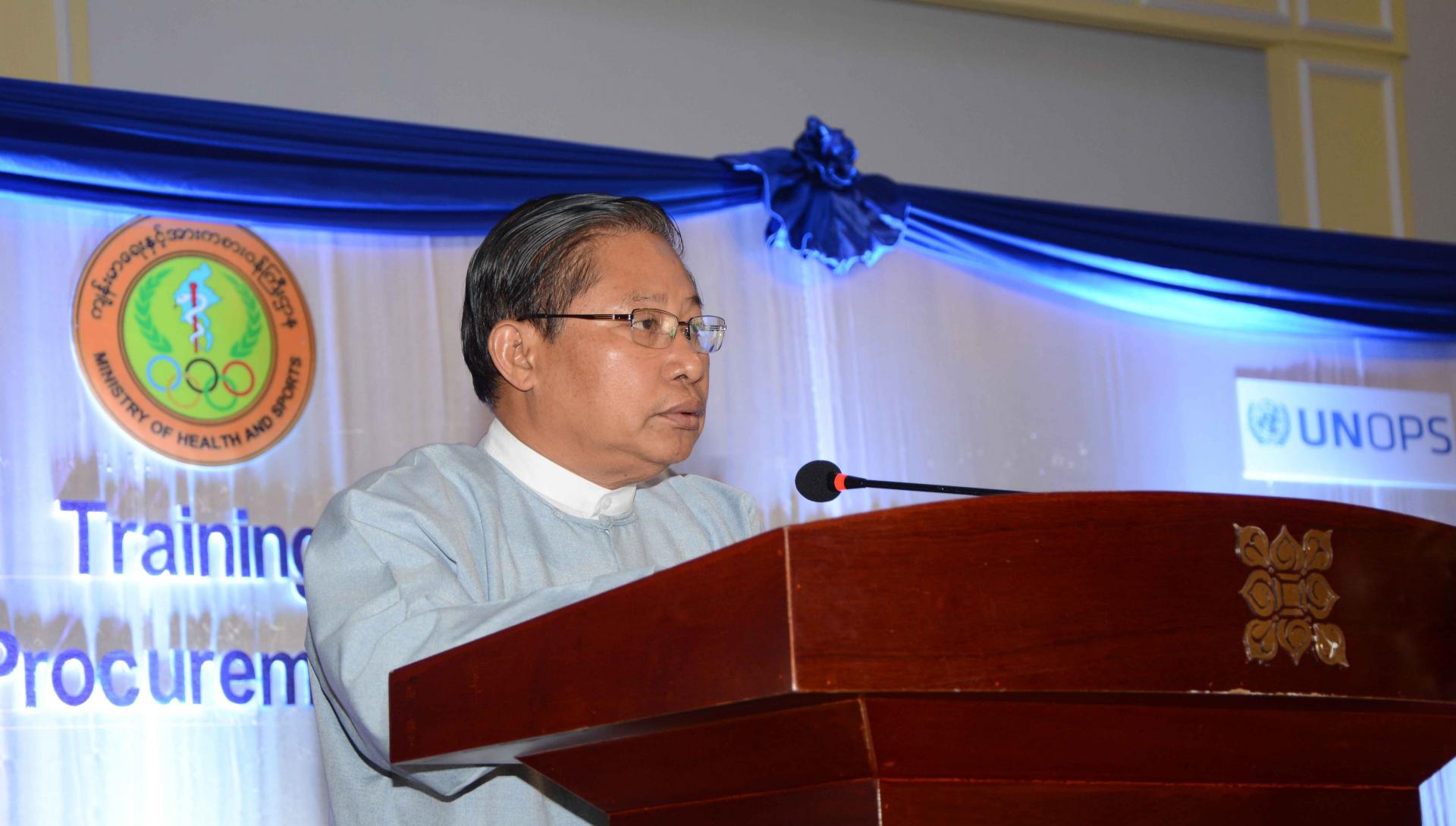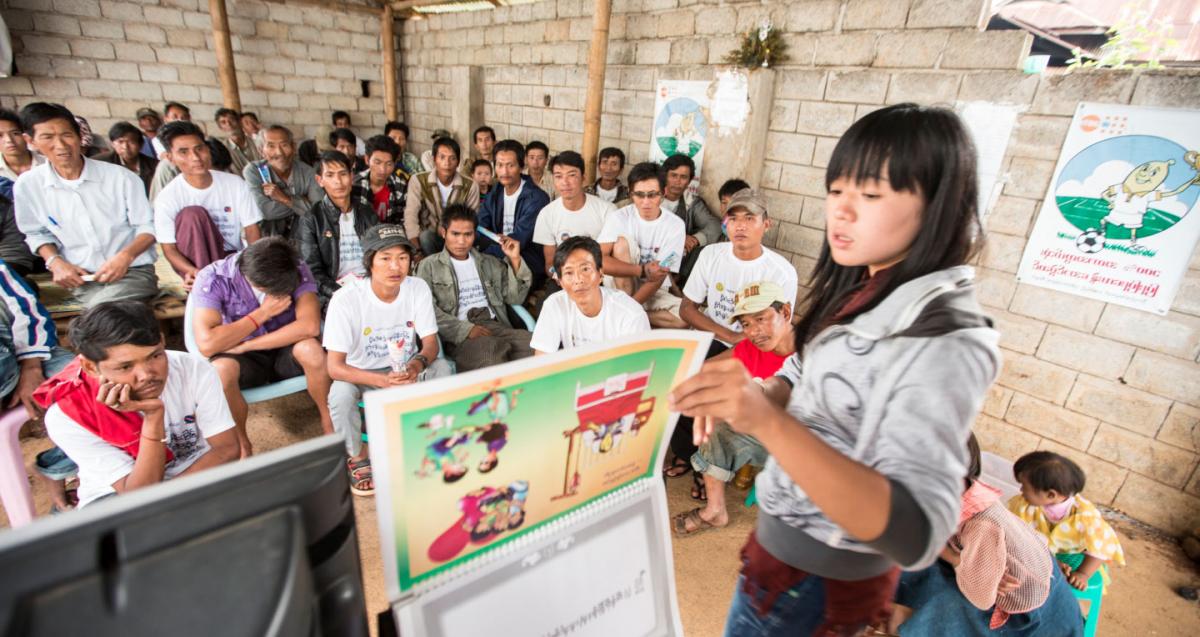All people in Myanmar, irrespective of their socioeconomic status, geographic location, ethnicity, religion, political belief, etc., should have access to the quality health services they are entitled to, whenever they need them, to achieve universal health coverage (UHC) in Myanmar by 2030. Capacity building of health staff and strengthening of Myanmar’s health system assumes more importance for effective planning, budgeting and implementation.
With the guidance and close collaboration of the national programmes/Ministry of Health and Sports (MOHS), a series of 21 batches of two-day trainings, 42 days in total, were held across 17 states/regions over the two months from 14 September to 24 November 2018. More than 1,200 government health staff participated, with an attendance rate of 97 per cent.
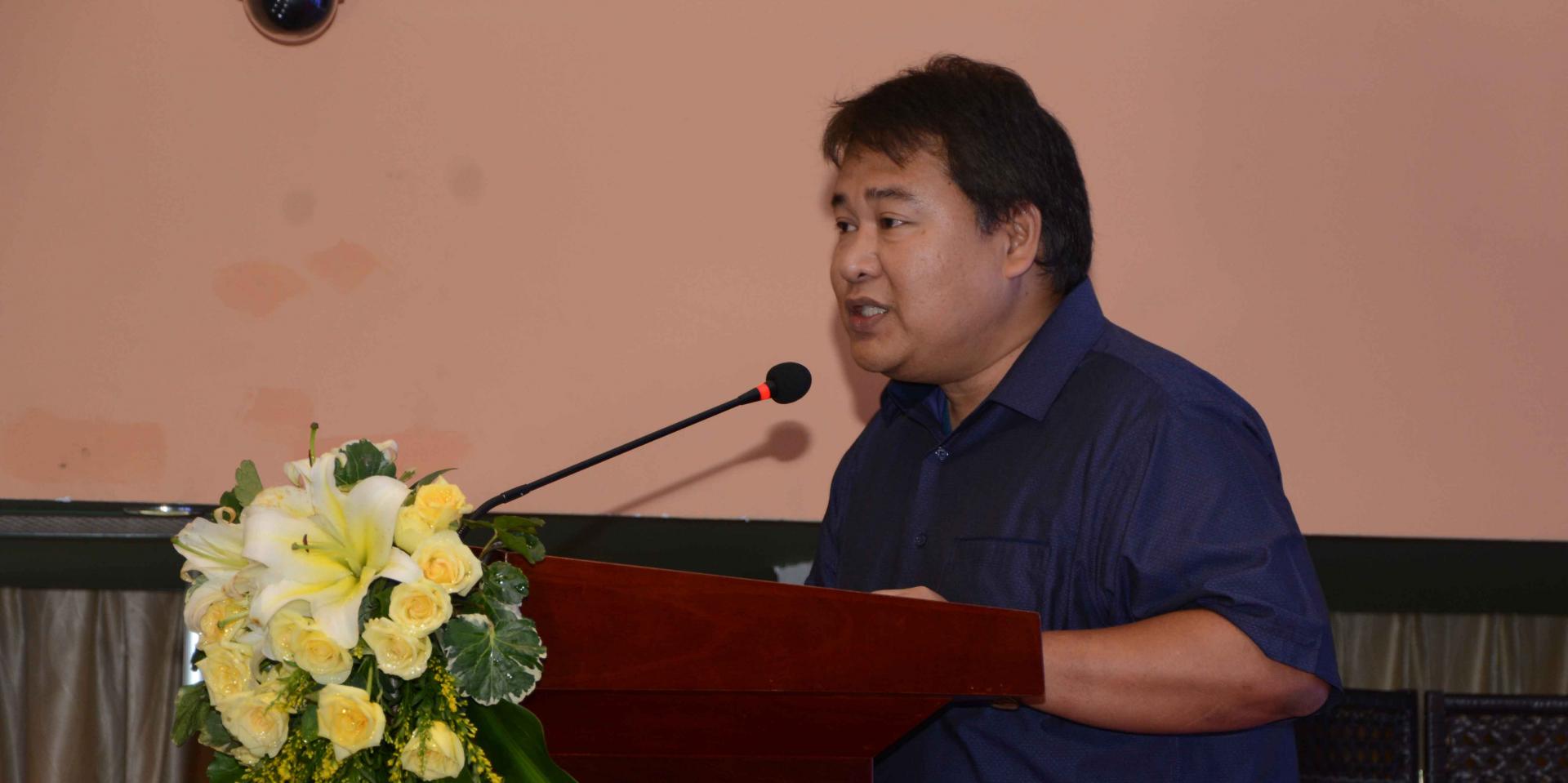
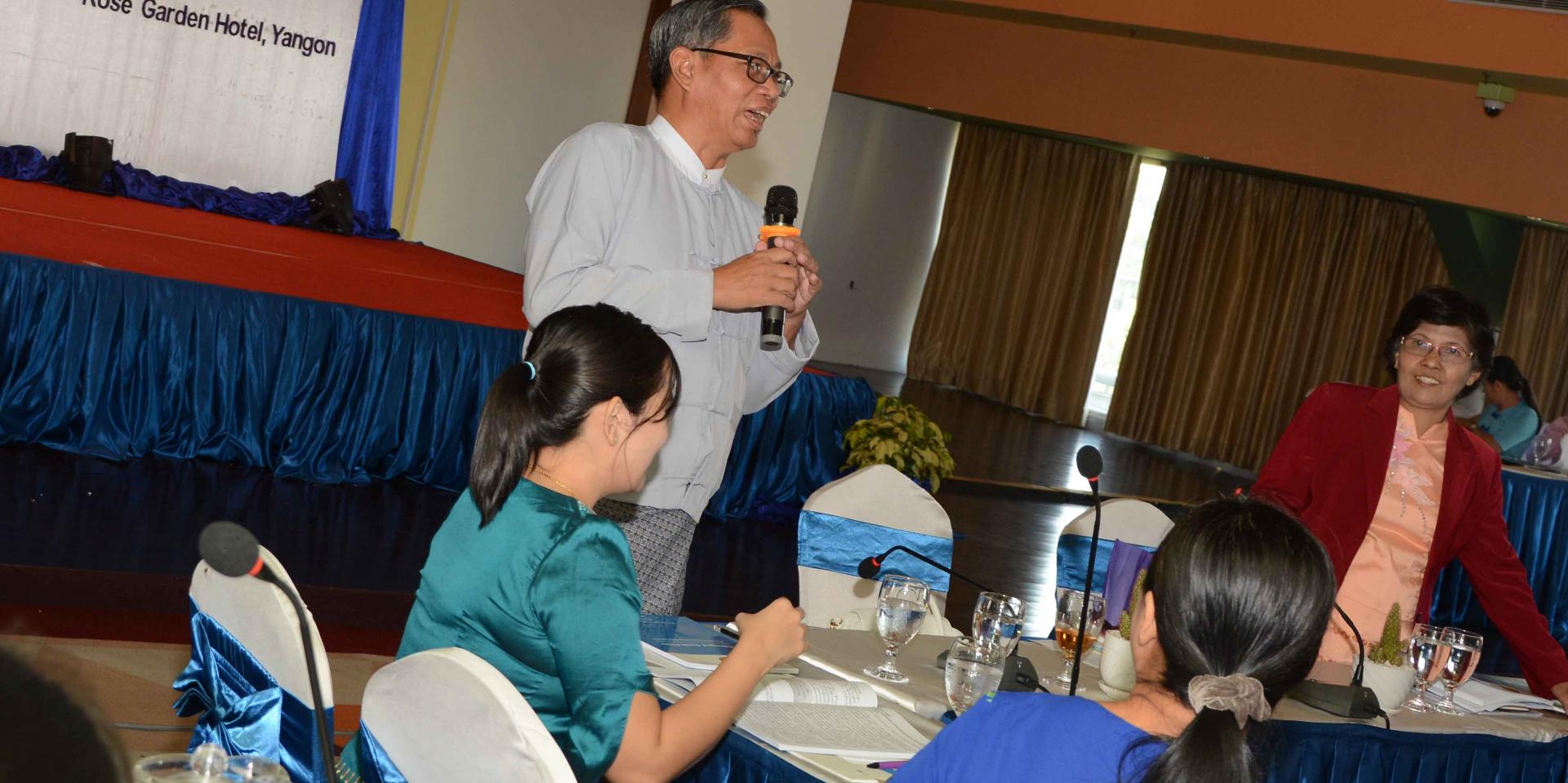
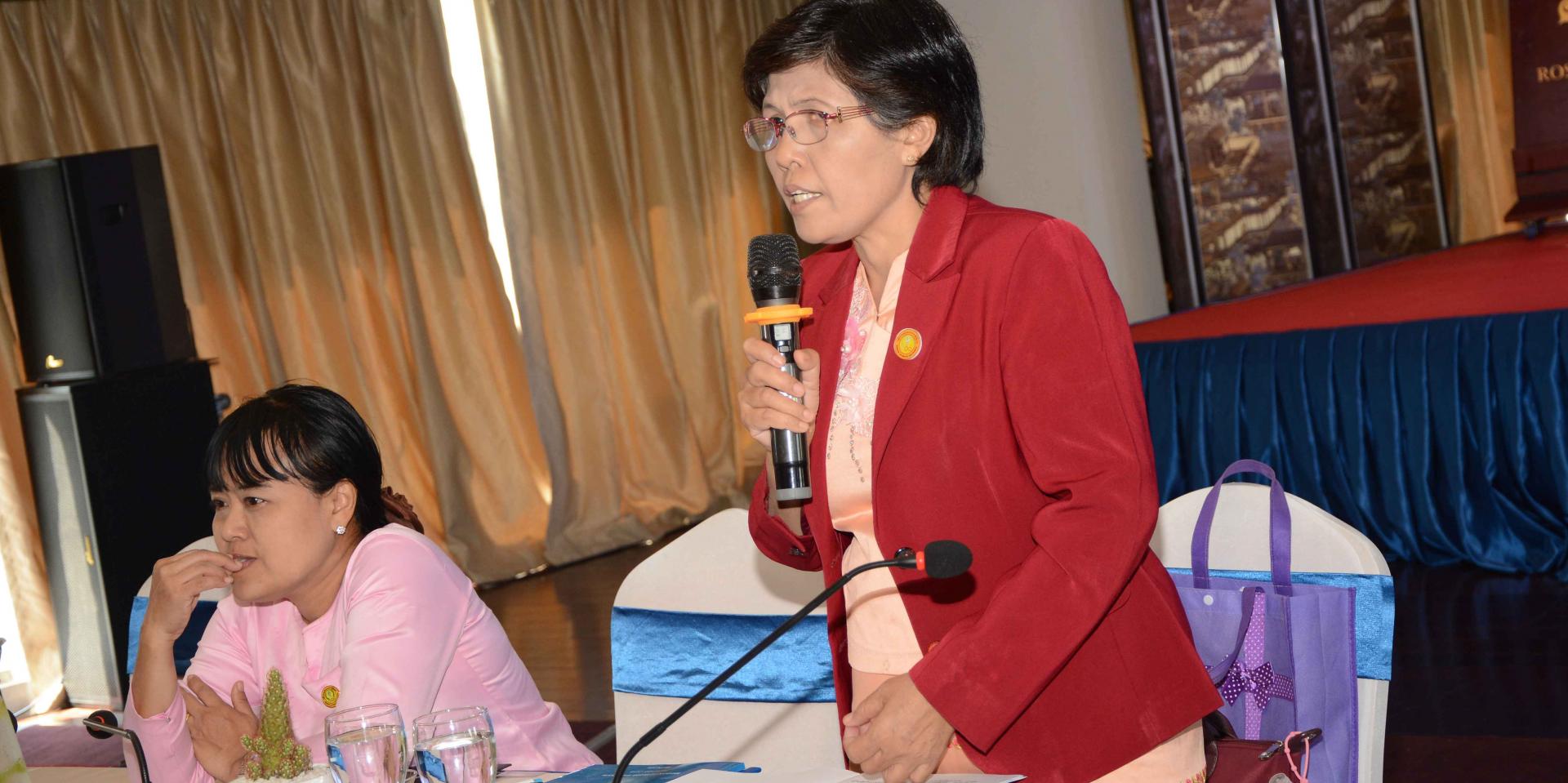
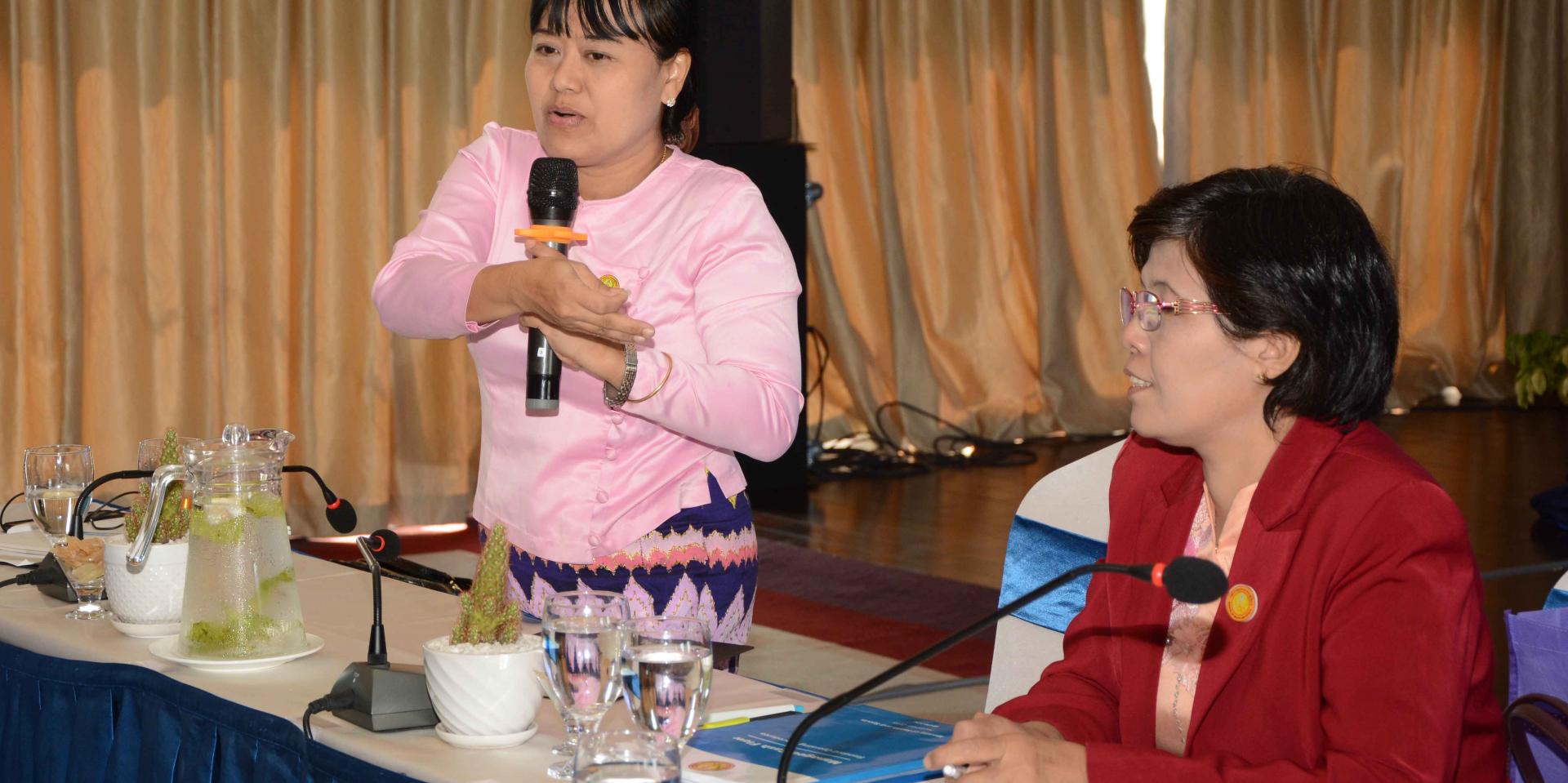
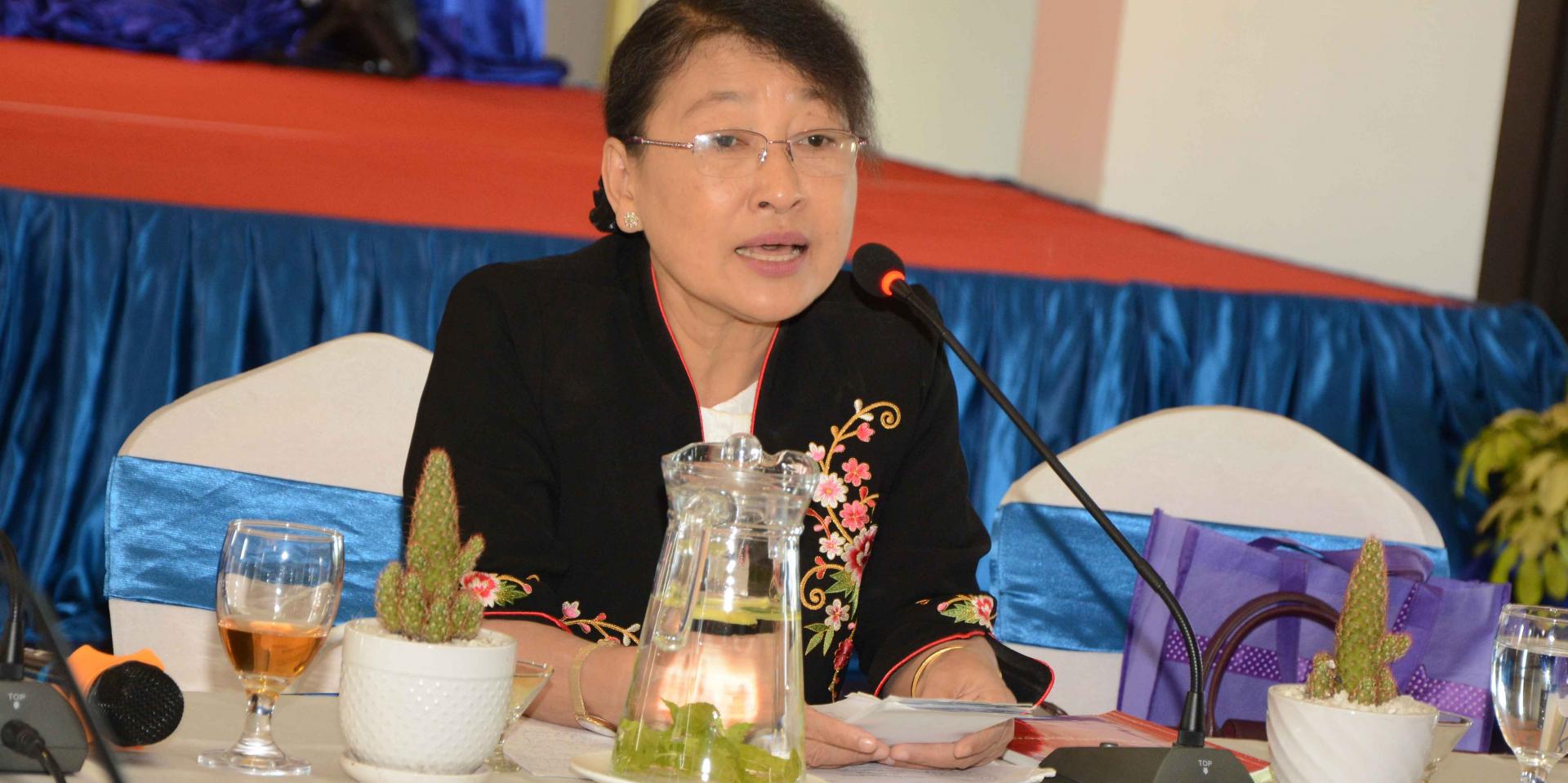
The aim of the training was to build the financial management capacities of officers working in the national health system, thereby strengthening the system. The training, entitled ‘Training on planning, budgeting, managed cash flow, procurement principles and government financial rules to MOHS staff at the state and regional levels’ facilitates not only the implementation of Global Fund grants, but also builds capacity of staff in terms of financial management, programme management, procurement and supply chain management, monitoring and reporting.
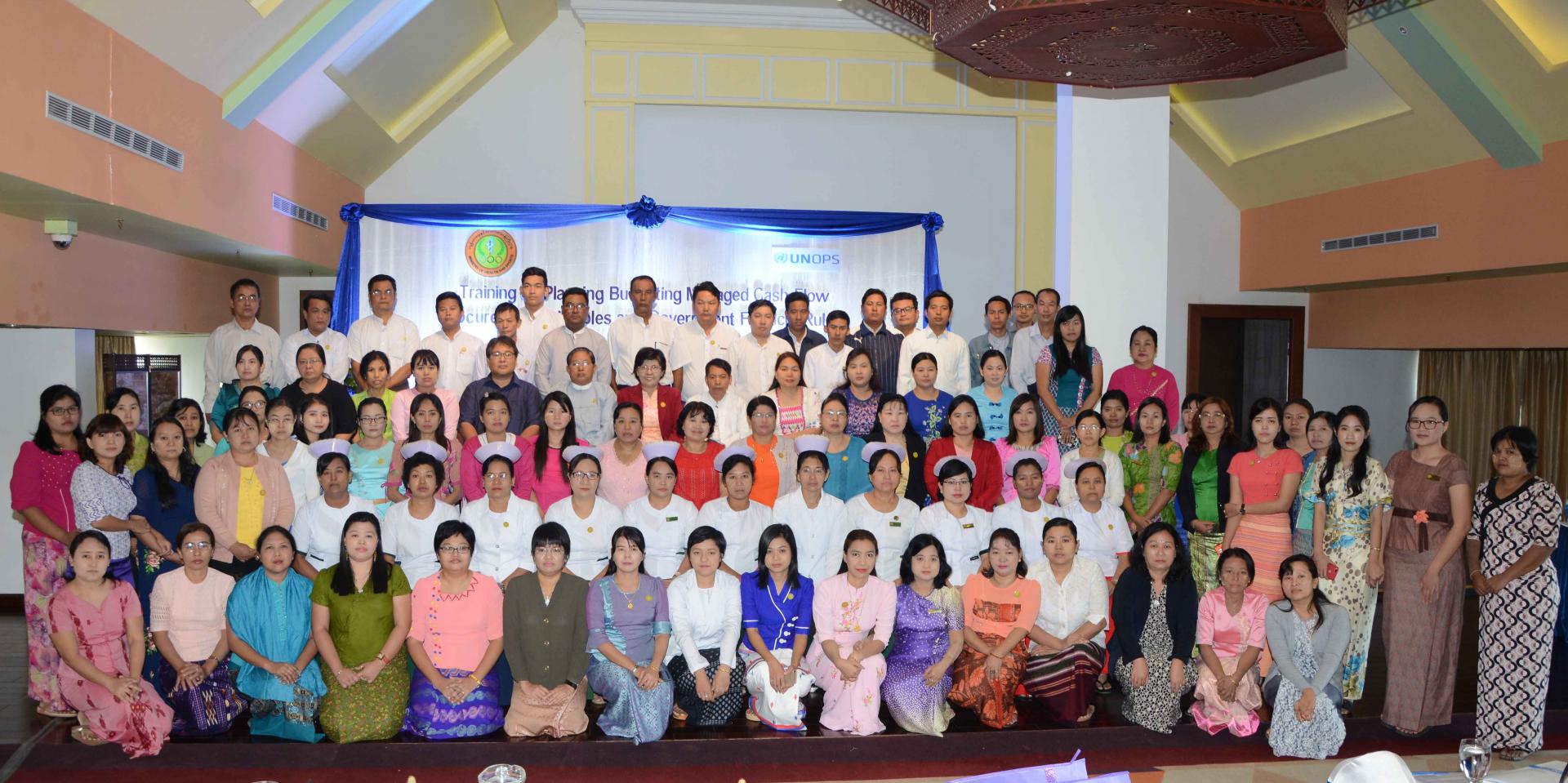
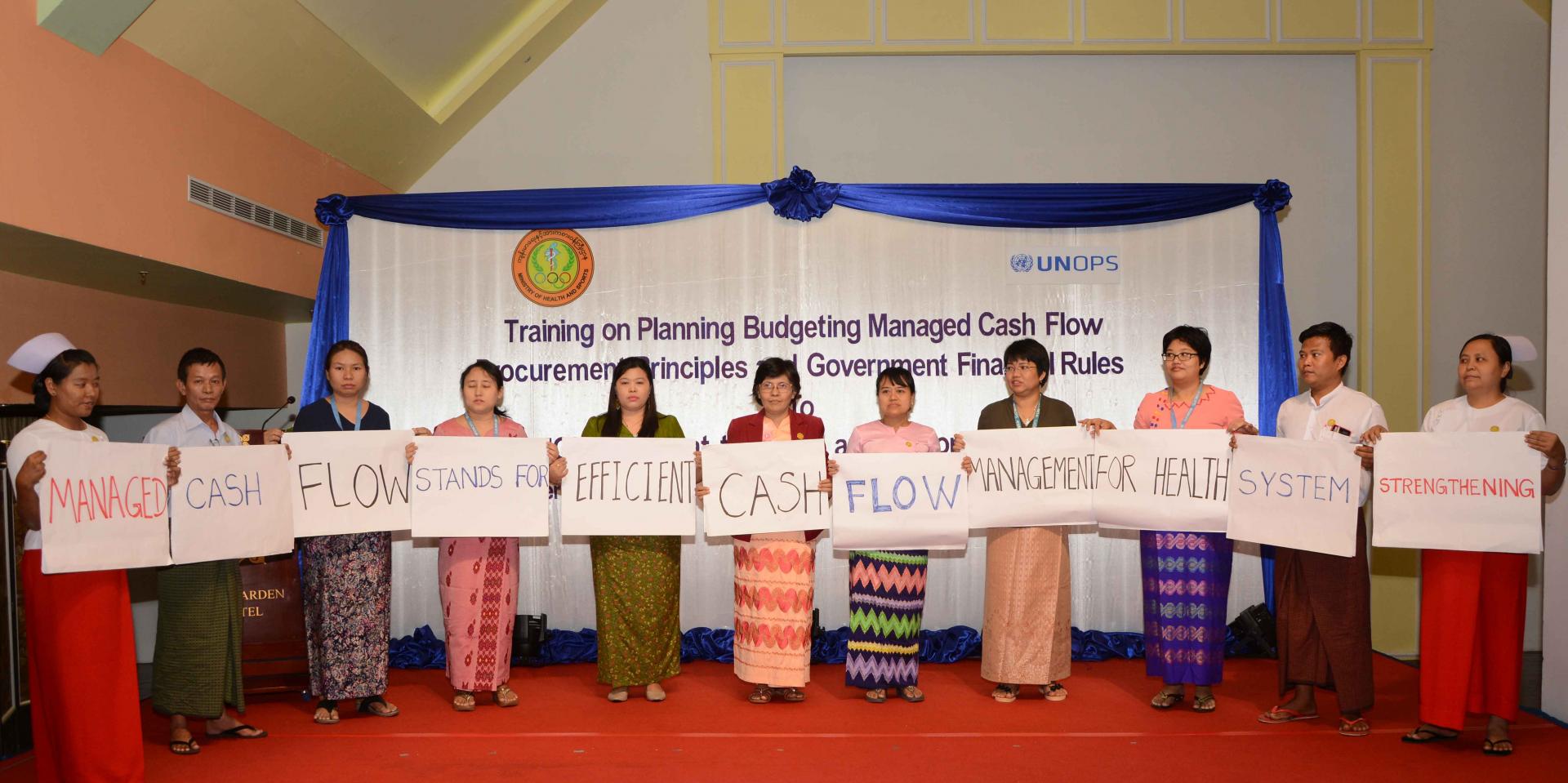
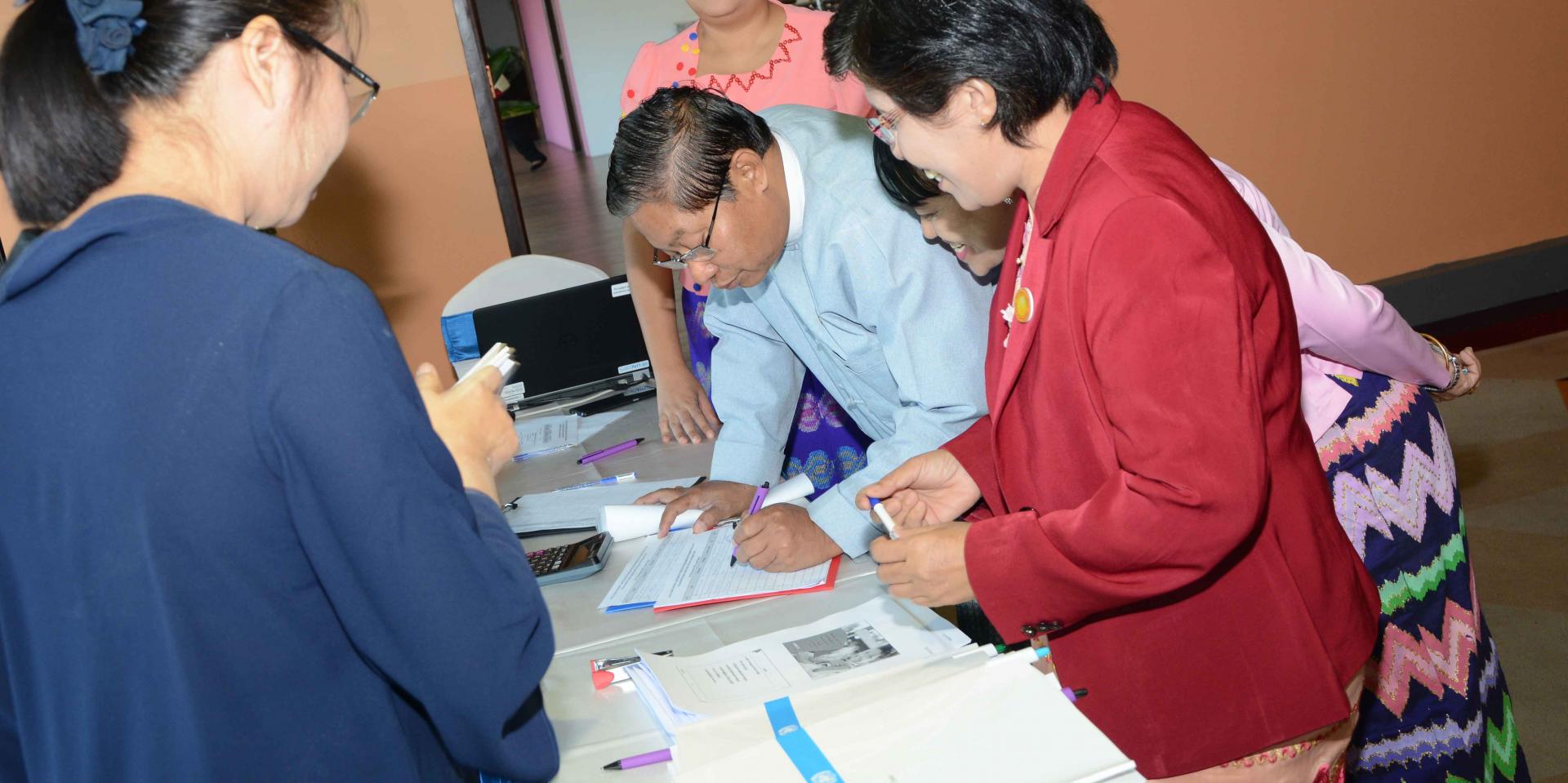
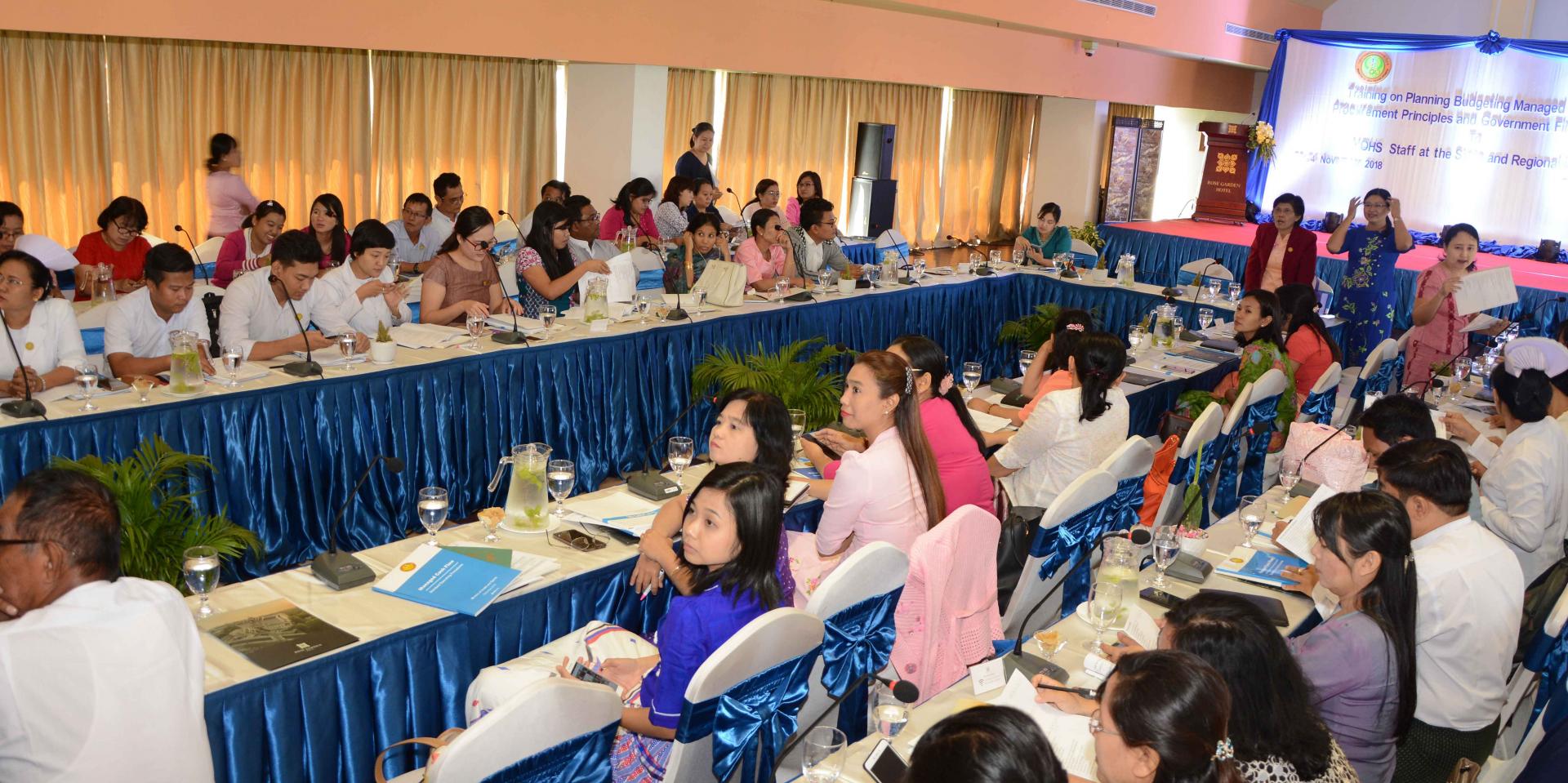
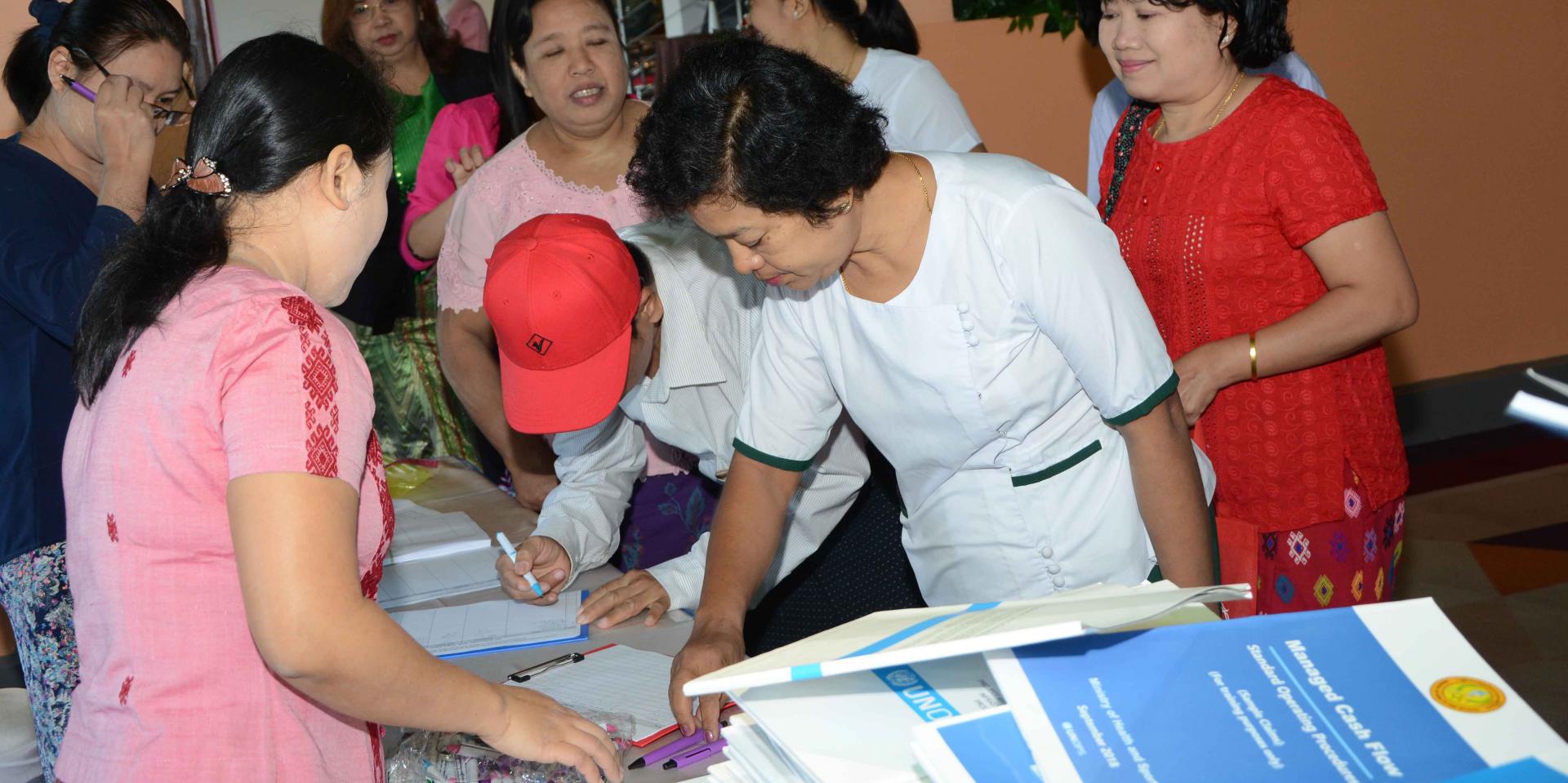
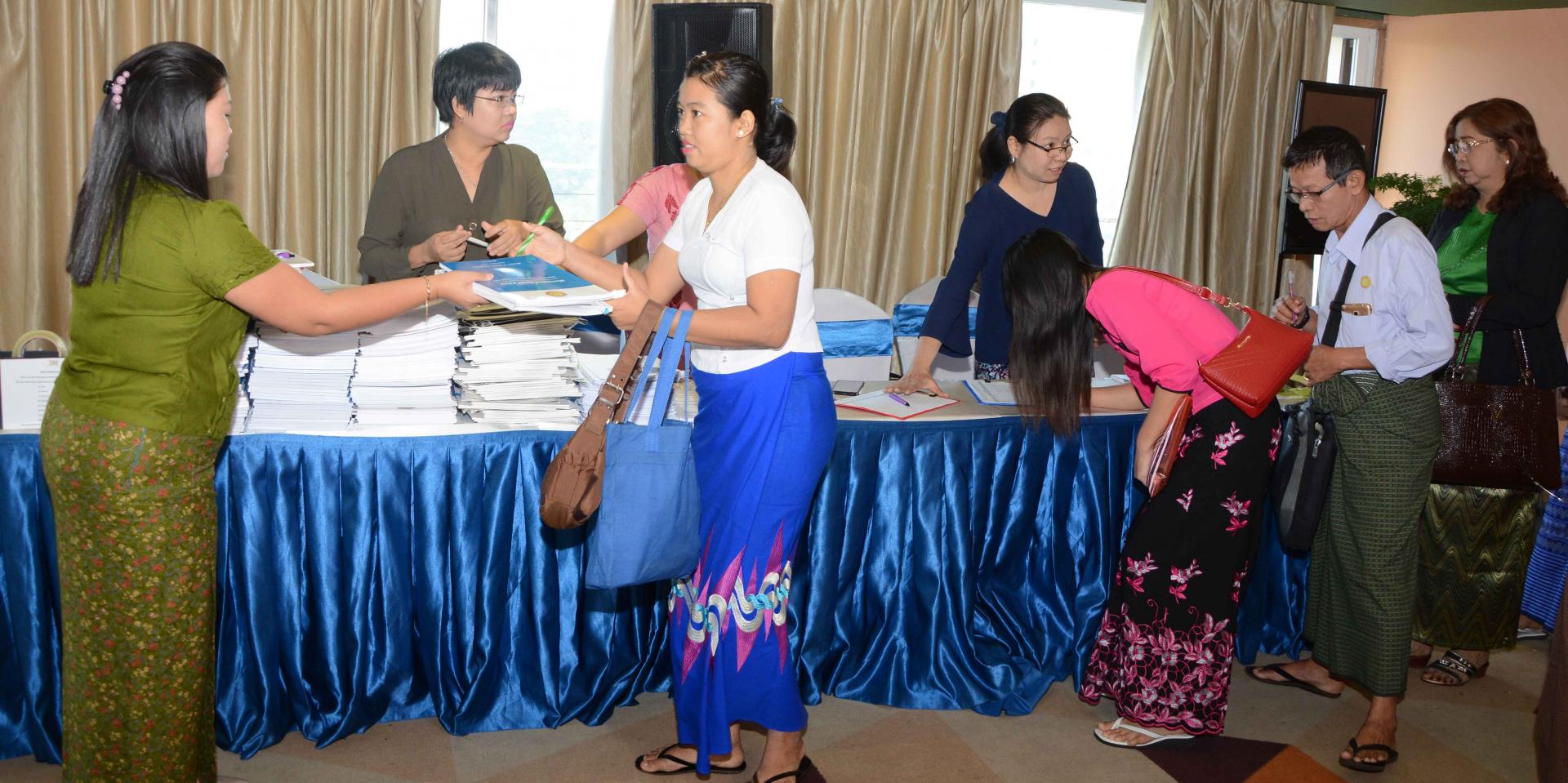
Similar trainings have been held in recent years (2013, 2015, 2016 and 2017) at national level. In 2018, financial clerks dealing with fund management also participated alongside basic health staff.
In his opening speech, Regional Health Director Dr Tun Myint said that strengthening financial management at township level is the building block for further strengthening management up at the state/regional level, and that effective planning is important to facilitate efficient cash flow to various implementation levels and down to the end user. Plans should be costed and implemented to be effective and to ensure equitable and high-quality healthcare for all, which should form the basis of microplanning. The training helps build capacity in planning, budgeting and cash flow for management of funding—irrespective of the funding source.
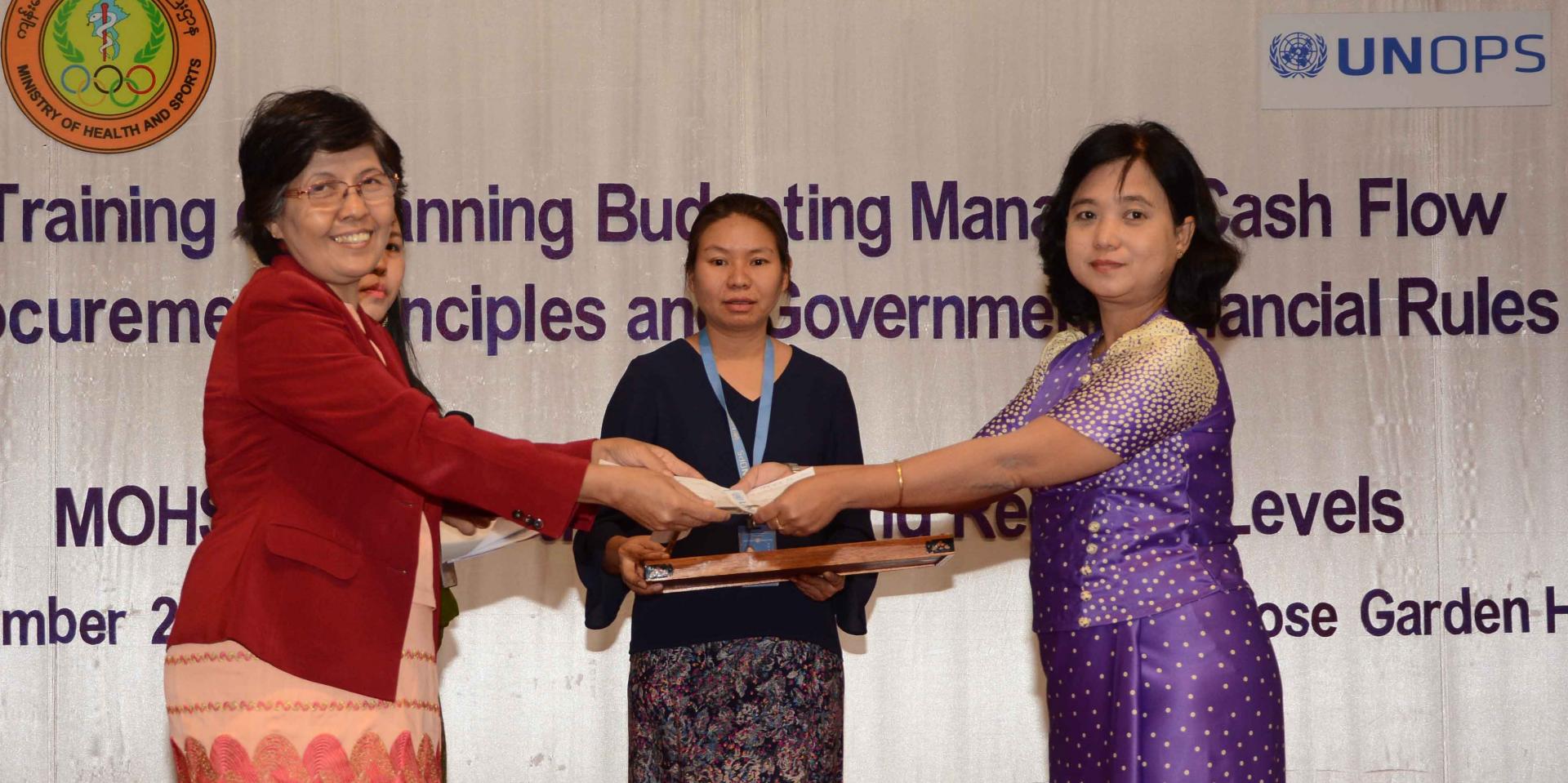
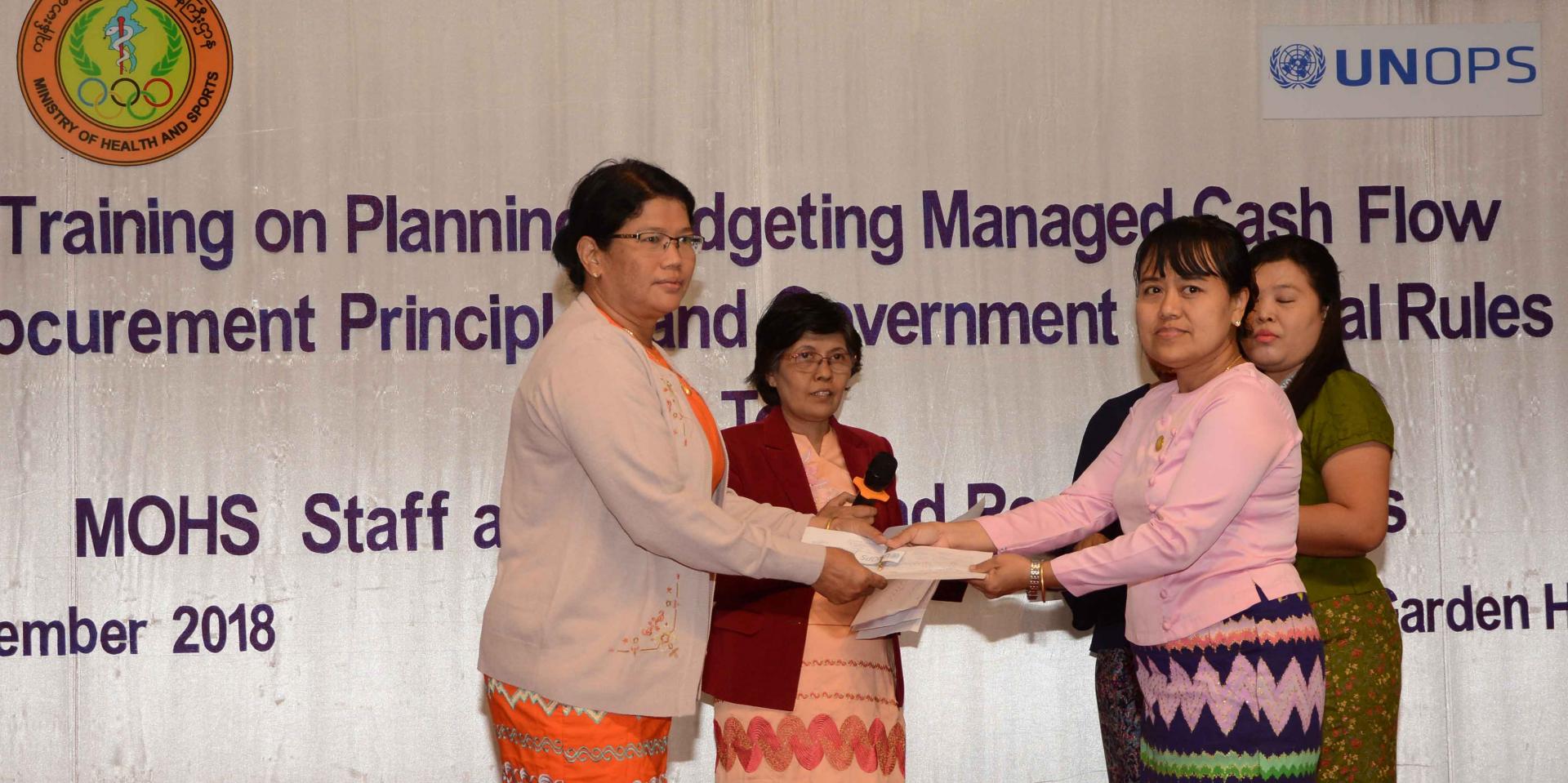
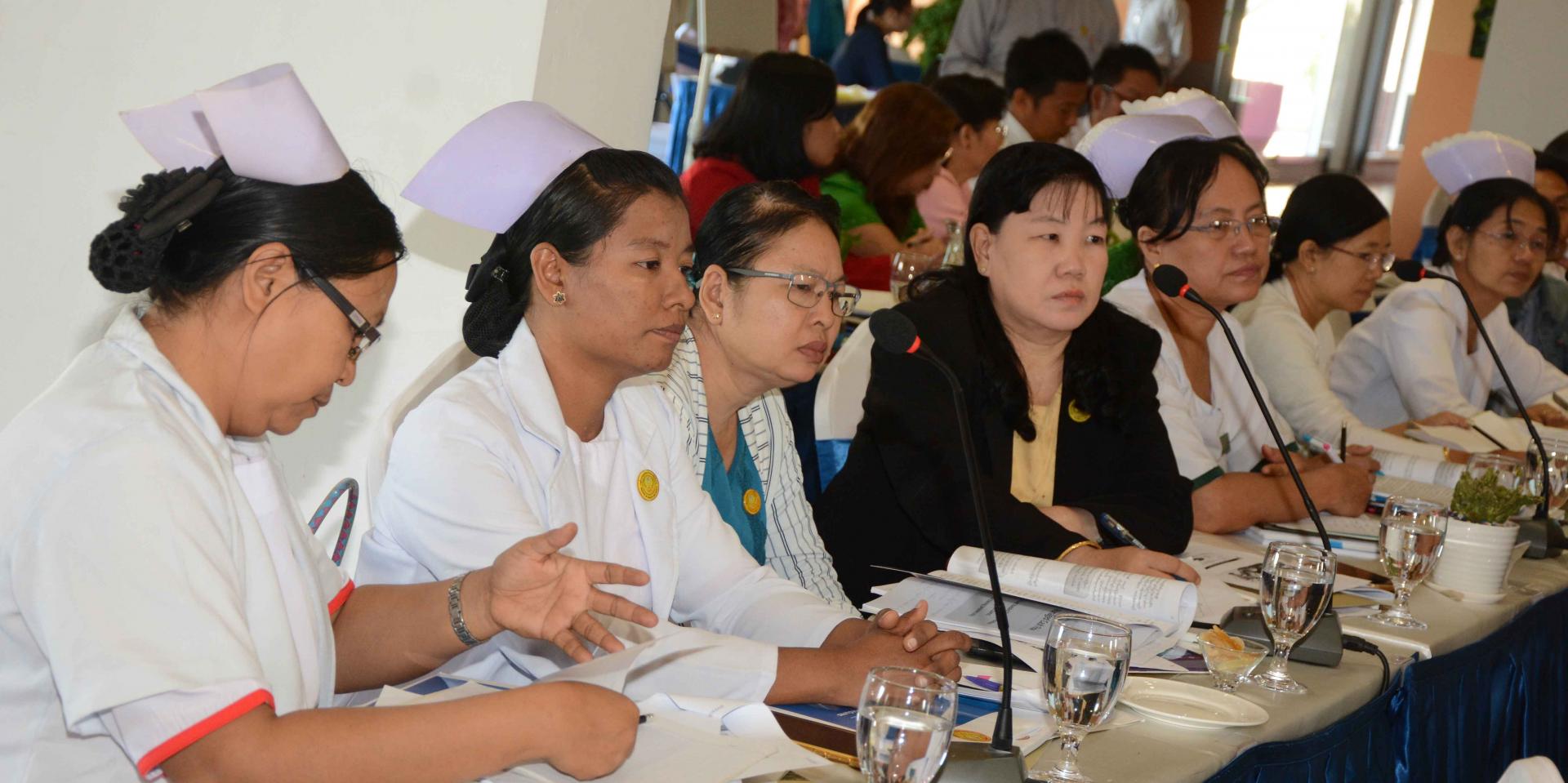
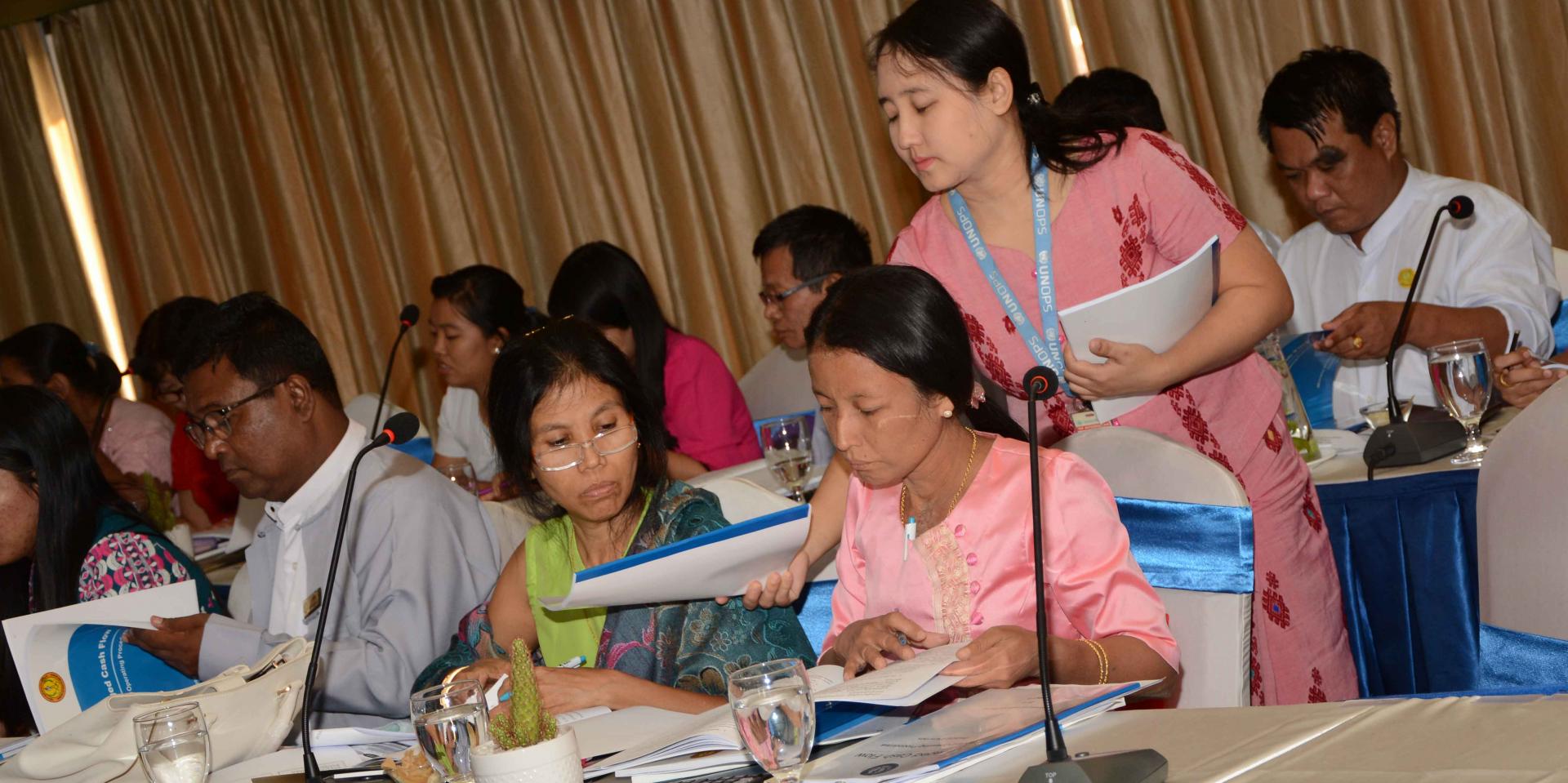
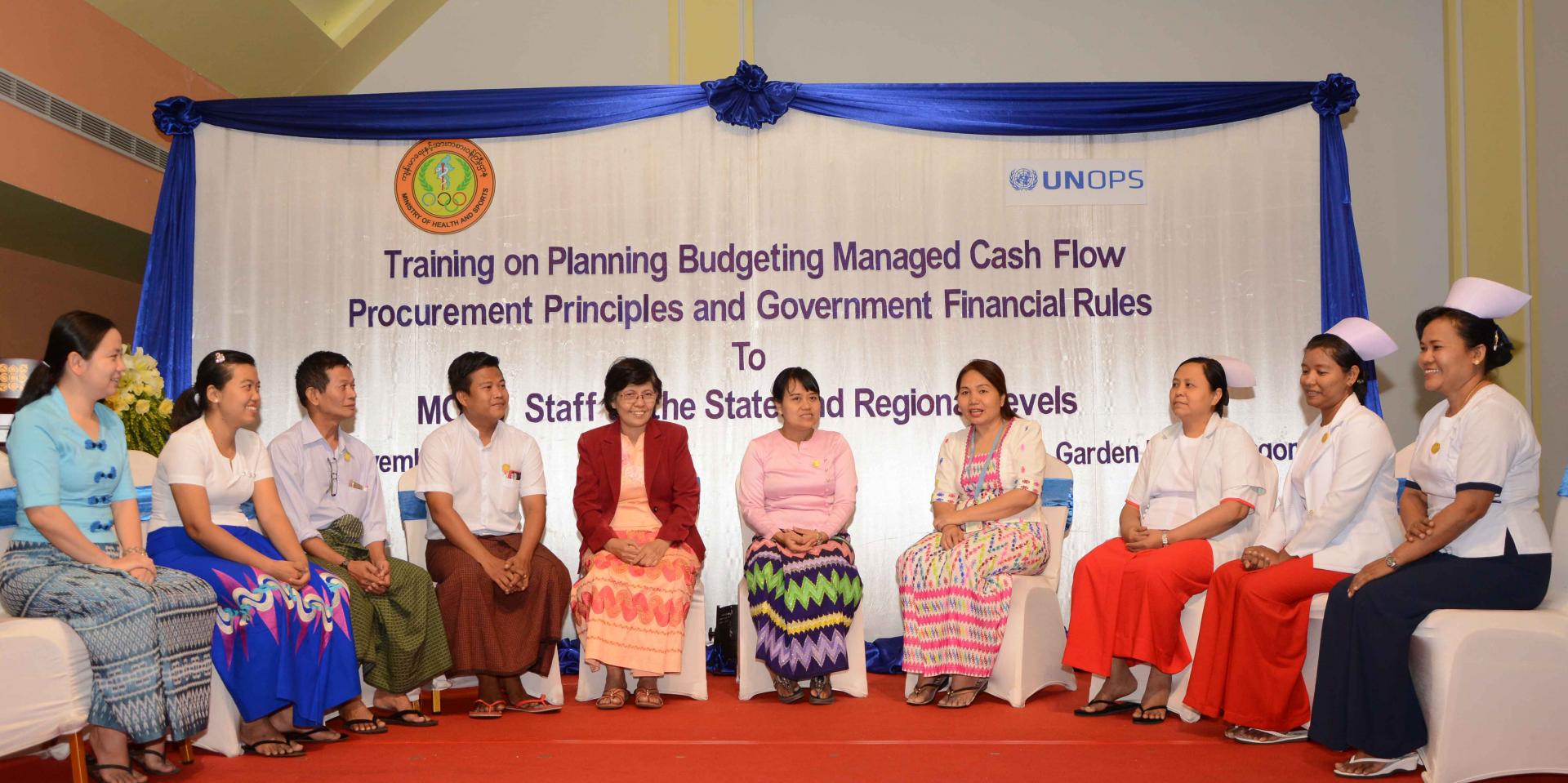
The discussion forum was led by Dr Khin Nan Lon, Deputy Director (Disease Control), Yangon Region Health Department, MOHS. The forum inspired rich discussion among participating health personnel of different backgrounds – both financial clerks and basic health staff – reaffirming their dedication and commitment to work as a stronger team, towards the same common goal of delivering quality healthcare services for all people of Myanmar, on its path towards achieving UHC by 2030.


